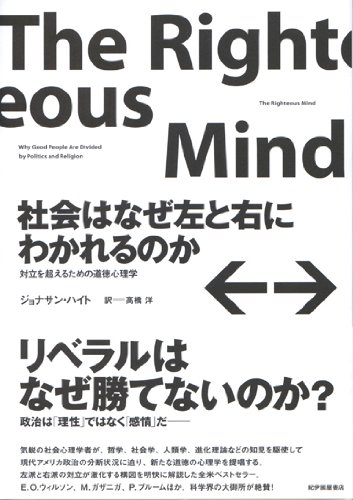“The Righteous Mind: Why Good People Are Divided by Politics and Religion” is a 2012 social psychology book by Jonathan Haidt. The book describes human morality as it relates to politics and religion. According to Jonathan Haidt, moral judgments don’t arise from any type of rational reflection, but instead gut feelings buried deep inside the subconscious.
The book challenges conventional thinking about morality, politics, and religion in a way that speaks to conservatives and liberals alike.
The book is a landmark contribution to humanity’s understanding of itself. It encourages understanding and civility in our public life.
The book is divided into three parts: “Intuitions Come First”, “There’s More to Morality than Harm and Fairness”, and “Morality Binds and Blinds”. The first part explains how moral intuitions are formed in the brain. The second part explains how morality is more than just harm and fairness. The third part explains how morality binds people together into groups.
“The Righteous Mind: Why Good People Are Divided by Politics and Religion”は、ジョナサン・ヘイトによる2012年の社会心理学の本です。本書は、政治と宗教に関連する人間の道徳を説明しています。ジョナサン・ヘイトによると、道徳的な判断は、どのような合理的な反省からも生じず、代わりに潜在意識の奥深くに埋め込まれた直感から生じるとされています。
本書は、保守派とリベラル派の両方に訴えかける形で、従来の道徳、政治、宗教に関する考え方に挑戦しています。本書は、人類自身の理解における画期的な貢献であり、公共生活における理解と礼儀を奨励しています。
本書は、「直感が先行する」「被害と公正以外の道徳がある」「道徳は人々を束ね、盲目的にする」という3つの部分に分かれています。第1部では、道徳的直感が脳内でどのように形成されるかを説明しています。第2部では、道徳は単なる被害と公正以上であることを説明しています。第3部では、道徳が人々をグループに束ねる方法を説明しています。

